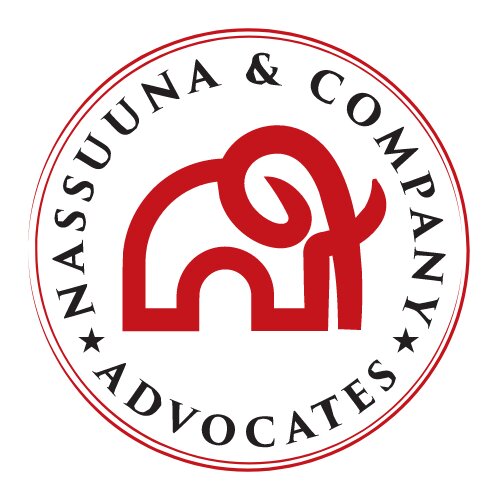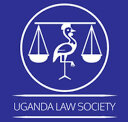Best ADR Mediation & Arbitration Lawyers in Kampala
Share your needs with us, get contacted by law firms.
Free. Takes 2 min.
List of the best lawyers in Kampala, Uganda
About ADR Mediation & Arbitration Law in Kampala, Uganda:
Alternative Dispute Resolution (ADR) in Kampala, Uganda, incorporates Mediation and Arbitration, as well as Negotiation and Conciliation, as principal methods of resolving disputes outside the traditional courtrooms. These methods are heralded for their effectiveness, flexibility, and relative speed, providing litigants a chance to arrive at a mutually beneficial resolution. It's imperative to understand the key distinction between Mediation and Arbitration. Mediation is a voluntary dispute resolution process guided by a neutral mediator, while Arbitration could be considered a private courtroom where an arbitrator gives an award or ruling that both parties must respect.
Why You May Need a Lawyer:
In situations such as commercial disputes, land and property disputes, family law matters, and any scenario where parties would rather seek less adversarial and potentially speedy resolution, you might need a lawyer well-versed in ADR. Attorneys proficient in ADR strategies can help guide the process, offer solutions tailored to your situation, and represent your interests better during Mediation or Arbitration.
Local Laws Overview:
Key laws providing for ADR in Uganda include the Constitution of Uganda, the Arbitration and Conciliation Act CAP 4, and the Judicature (Mediation) Rules 2013. The Constitution emboldens parties in a conflict to utilize alternative mechanisms of dispute resolution, including Arbitration or Mediation. The Arbitration and Conciliation Act CAP 4 is the primary law that facilitates commanding authority over the process and procedures for Arbitration and Conciliation. Lastly, the Judicature (Mediation) Rules 2013 instituted mandatory Mediation for all civil matters lodged in the commercial court.
Frequently Asked Questions:
1. Is ADR legally binding in Kampala, Uganda?
Yes. The decision resulting from Arbitration, known as an Arbitral Award, is legally binding and enforceable by law. However, decisions from Mediation are typically not legally binding unless the parties involved agree to such terms and incorporate them into a legally binding document or contract.
2. What kind of disputes can be resolved by ADR?
ADR methods such as Mediation and Arbitration can be effective in resolving a wide range of disputes like commercial disputes, labor issues, property disputes, and family law matters amongst others.
3. What is the duration for an Arbitration process in Kampala?
The duration of an Arbitration process may vary depending on the complexity of the case. It typically might be shorter than traditional court processes but a definitive timeline is usually agreed upon by the parties involved in the dispute.
4. Can a Mediation agreement be enforced in court?
Mediation agreements are not usually enforceable in court unless they are incorporated into a binding contract or court order.
5. Can one opt for ADR even after a court case has started?
Yes. A court case can be halted or diverted for Mediation or Arbitration at any stage, providing a potential for faster and less adversarial resolution.
Additional Resources:
For more information or assistance with ADR, you could contact the Centre for Arbitration and Dispute Resolution (CADER), the Uganda Law Society, or the Uganda National Council for Law Reporting. While they don't provide individual lawyers, they can direct you to legal aid and related services, and they provide valuable resources and information about the legal system and ADR in Uganda.
Next Steps:
If you need legal assistance with ADR, it would be advisable to consult with an attorney experienced in ADR law in Uganda. They can guide you through the process, represent your interests and understand your legal options. Ensure to prepare all relevant documentation and be clear about your desired outcome to gain the most from your consultation.
Lawzana helps you find the best lawyers and law firms in Kampala through a curated and pre-screened list of qualified legal professionals. Our platform offers rankings and detailed profiles of attorneys and law firms, allowing you to compare based on practice areas, including ADR Mediation & Arbitration , experience, and client feedback.
Each profile includes a description of the firm's areas of practice, client reviews, team members and partners, year of establishment, spoken languages, office locations, contact information, social media presence, and any published articles or resources. Most firms on our platform speak English and are experienced in both local and international legal matters.
Get a quote from top-rated law firms in Kampala, Uganda — quickly, securely, and without unnecessary hassle.
Disclaimer:
The information provided on this page is for general informational purposes only and does not constitute legal advice. While we strive to ensure the accuracy and relevance of the content, legal information may change over time, and interpretations of the law can vary. You should always consult with a qualified legal professional for advice specific to your situation.
We disclaim all liability for actions taken or not taken based on the content of this page. If you believe any information is incorrect or outdated, please contact us, and we will review and update it where appropriate.















